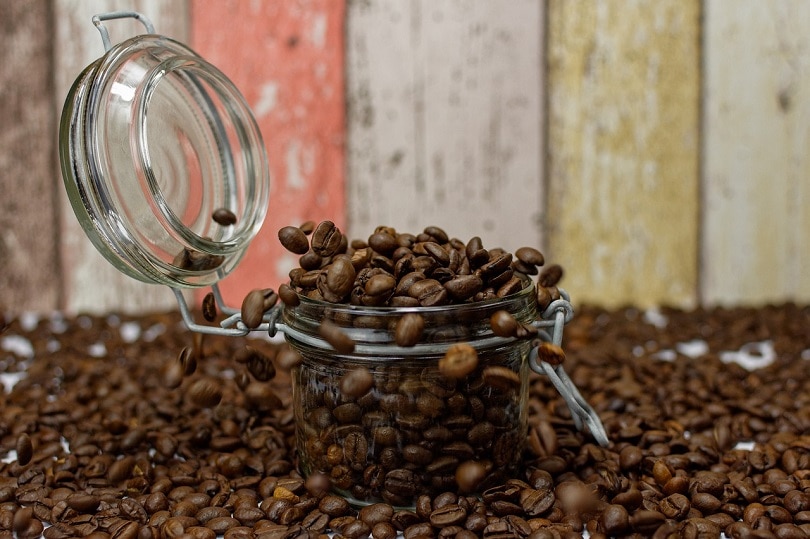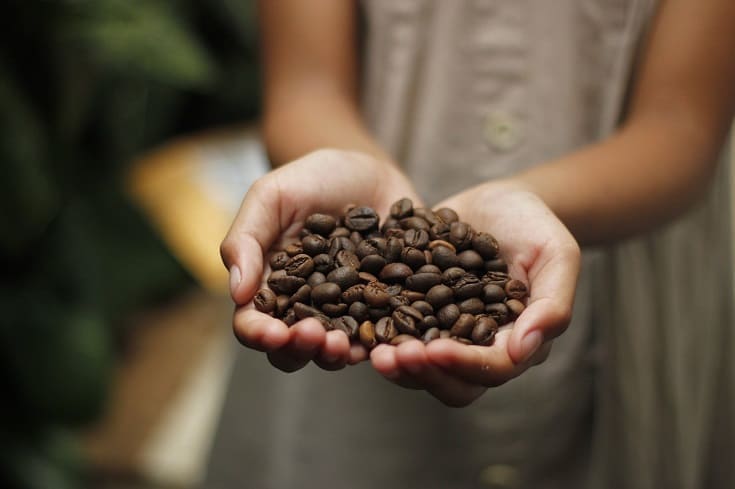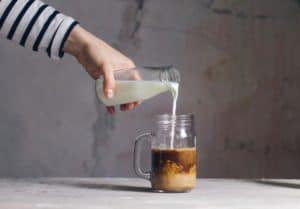
Coffee is not exactly the most affordable drink in the world. On average, millennials are estimated to spend $2,000 on coffee per year. That’s quite a bit of money to spend on a drink. Because of how expensive coffee is, most people want to take care of their coffee and coffee beans as best as possible to maximize their lifespan and quality.
One thing that people get wrong often about coffee preservation is that they put their coffee in freezer storage. This is one of the fastest ways to make your coffee beans go bad. Since the freezer keeps the quality of most other food and drinks intact, many people are surprised by this fact.
Unlike your meal prep and leftovers, however, coffee should be stored in a pantry, not the freezer. Here’s why.
Storing Coffee Beans in Freezers? Think Again
One of the biggest enemies of coffee is moisture. Moisture makes coffee beans turn bad quickly. Not to mention, it dulls the taste in the process. A fridge or freezer has a high moisture content, making it a very humid environment. As a result, storing coffee in freezer or fridge options is terrible. It does the opposite of preserving your coffee and makes it taste bad in the process.
On top of this, your refrigerator and freezer undergo a lot of temperature fluctuations throughout the day. Whenever you open or close the door, the fridge gets warmer. When this happens, condensation can build up, creating even more moisture.

This is terrible for your coffee because there is an even higher chance of it going bad. After all, condensation is more likely to build up around it. This is especially true as you bring the coffee beans in and out of the freezer each morning when you’re ready to brew.
What Makes Moisture So Bad for Coffee?
Coffee is considered hygroscopic. This is a fancy word that means it absorbs water from the air. Even though we do not see water in the air, water particles are there constantly. More humid environments have more water in the air than drier environments. Being hygroscopic, it can also absorb any flavors or odors within the water particles.

As the coffee absorbs water from the air, essential oils are displaced, causing the coffee to age faster. As it is aging and essential oils leaving, the flavor and aroma of the coffee are lost. If the water had other smells and aroma, you might begin to taste or smell other flavors not belonging to the coffee instead.
In other words, moisture is so bad for your coffee’s life span and flavor because it changes the bean’s cell structure. When the cell structure changes, it loses oils, causing the coffee to have a different aroma, duller flavor, and go bad quicker.
What to Do Instead: Expert Tips
Instead of storing coffee beans in the freezer, you should store them in a cool, dry, and dark area. A pantry will be the best option. This area provides safety away from any light, heat, and moisture. As a result, the coffee will last longer and keep its more robust flavor.
To store your coffee correctly, find a resealable container to put it in. This can be an old coffee container, Tupperware storage, Mason jar, etc. These containers will keep the coffee beans completely away from any unwanted contaminants or exposure.

To really ensure that your coffee is preserved as best as possible, opt for Airscape containers or vacuum-sealed containers. These containers can remove excess air, ensuring that the coffee lasts with a beautiful flavor for as long as possible.
Once you have successfully put the coffee in a resealable container, put it on the top shelf of a pantry. The lower shelves will be cooler than some of the higher ones. Only take the coffee out of the pantry to get access to the beans, and promptly put the container back on the shelf when you’re done.
Other Storage Tips
On top of storing coffee beans in your pantry, there are some other tips to help maximize the flavor of the coffee. For starters, you should use ground coffee as soon as possible. Especially if you grind the coffee yourself, only grind as much as you need for your morning cup.
As soon as the coffee bean is broken up, it begins to oxidize, meaning that it loses its flavor, aroma, and lifespan. Only grind the coffee immediately before you want to drink it so as to have the best flavor. Use a high-quality grinder (like the Hario Skerton Pro) for the best results.
You should also buy smaller batches of coffee beans. Even though this will require you to go to the store more often, it will help the coffee stay better since it sits for less time in your pantry. However, if you find that your coffee beans have gone stale, don’t throw them out. Instead, stale beans are great for cold brew.
Is It Ever Okay to Put Coffee in Freezer?
Generally speaking, you should not put coffee that you intend to drink in the freezer, for the reasons we mentioned above. However, there are individual instances when it is appropriate to put the coffee in a freezer.
Let’s say that you like buying in bulk to save money and resources. If you don’t anticipate using the coffee beans within the next week, it is completely fine to put the coffee in the freezer. So long as you are not taking it in and out of the freezer, it can remain there for a month at most.
While in the freezer, try to put it as far away from the door as possible. This will minimize condensation whenever you open the freezer door to grab other food content. Do not move the coffee in and out of the freezer until you are ready to thaw it completely.
Whenever you are ready to drink the coffee, take it out of the freezer and let it thaw on a pantry shelf. You must use this frozen coffee within two weeks of it being removed from the freezer. Waiting any longer may cause you to drink bad coffee.
Conclusion
All in all, you should not store coffee beans in the freezer unless you have bought it in bulk. Otherwise, store coffee beans in a pantry and some airtight container. If you do store coffee in the freezer, keep it away from the door and only take it out when you are ready to thaw it.
Storing your coffee in the fridge or freezer will cause it to lose its aroma and flavor. Not to mention, it won’t last as long and will absorb the smells and flavors surrounding it. Given that your fridge is full of some pretty odd smells, this is pretty undesirable for coffee connoisseurs.
See also:
- How to Store Coffee Beans: Here’s The Best Way to Keep them Fresh
- The Ultimate Coffee Grind Size Chart – How Fine Should You Grind?
Featured image credit: un-perfekt, Pixabay

















